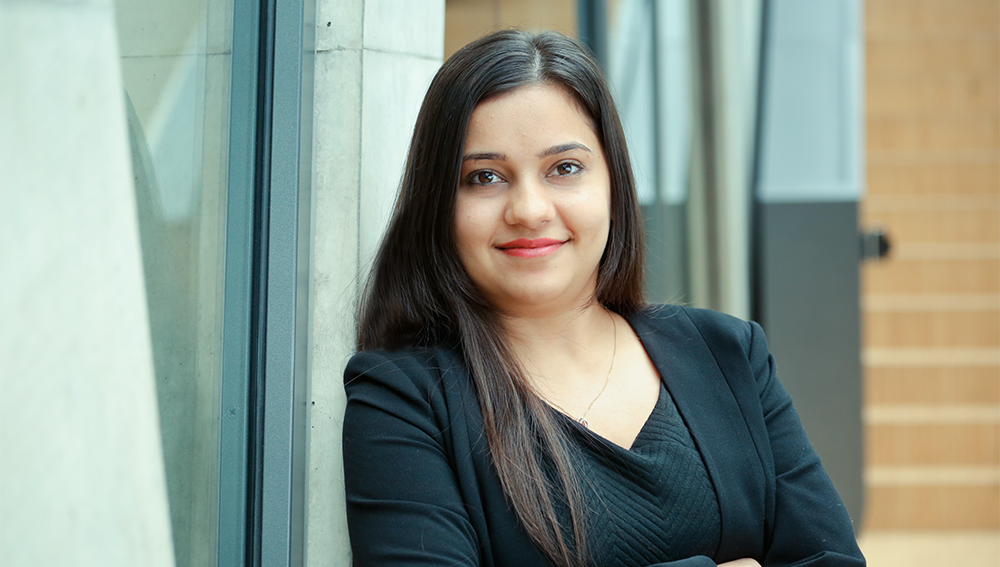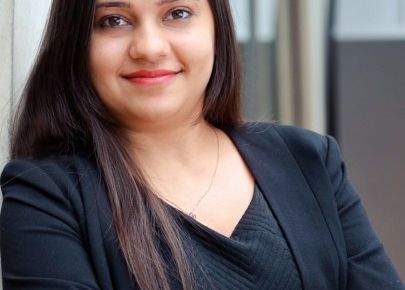Dr. Manisha Luthra, a senior researcher in Professor Binnig's research department “Systems AI for Decision Support” (SAIDE) at DFKI, has been awarded the KuVS Award for her 2021 doctoral dissertation. The award of the special interest group Communication and Distributed Systems (KuVS) is jointly presented by the Gesellschaft für Informatik (GI) and the Informationstechnische Gesellschaft im VDE e.V. (ITG).
In her dissertation "Network-centric Complex Event Processing" [1], Dr Manisha Luthra dealt with the three core problems of adaptivity, efficiency and interoperability in the processing of data streams and complex event processing systems. The concepts proposed in her thesis makes important contributions in improving performance of the placement and execution of continuous queries in highly dynamic and modern networks.
The contributions of her dissertation make it easier to build distributed systems that meet the complex requirements of IoT applications - for example, in the context of a very dynamic and complex scenario of smart city. Traffic management for self-driving cars, load control in smart power grids, automatic monitoring of money transfers: In the smart city, applications refer to huge amounts of real-time data from moving sources such as sensors or smartphones. But how can the data be processed quickly and meaningfully?
Manisha Luthra dealt with this in her dissertation at the Multimedia Communication (KOM) department of Professor Ralf Steinmetz at TU Darmstadt and within the framework of the DFG Collaborative Research Centre MAKI, for which she has now been awarded the KuVS Prize for the best dissertation in 2021. Specifically, Manisha Luthra develops solutions for dynamic real-time distributed system in her dissertation entitled "Network-centric Complex Event Processing": with contributions for adaptivity, efficiency and interoperability.
The contribution on “adaptivity“ revolves around the question of how the required computing units can be distributed in the network in the best possible way and where in the network data streams are best processed further as operators into meaningful units - especially when, for example, new sensors are added to the network at a traffic intersection and others disappear. She has developed an intelligent system that takes these dynamics in the network into account and decides on the most powerful among various placement options as well as adapt between placement options when necessary. The operator is then automatically moved in the network based on the corresponding predictions, for example from a sensor to a server. The system ensures a seamless transition between the placemant options without any loss of performance based on the concept of transitions within the framework of SFB MAKI.
Manisha Luthra addresses the second problem of "efficiency" by leveraging programmable switches in the network to increase the speed of data processing using the paradigm of Information-centric Networking. This guarantees extremely low latency of processing, which is immensely important for the processing of data streams from sensors, because new data is constantly being generated and this has to be further processed into meaningful units virtually in real time.
In the third contribution on the topic of "interoperability", Manisha Luthra proposes methods that make it possible to unify the interfaces of various Complex Event Processing (CEP) systems and thus to be able to different systems. To enable this, she makes use of the the underlying principles of serverless computing paradigm. This ensures that the developers can program CEP applications independent of the programming language, underlying hardware and operating system.
The GI/ITG special interest group Communication and Distributed Systems awards the KUVS Prize to outstanding theses and dissertations. The prize will be officially awarded at the International Conference on Networked Systems (NetSys 2023) next September in Potsdam and comes with a prize money of 500 euros for the best dissertation. Ms. Luthra will give a talk on the award-winning thesis at the event.
About the awardee
Dr. Manisha Luthra, is a senior researcher in professor Binnig's research department “Systems AI for Decision Support” (SAIDE) at DFKI and a postdoctoral researcher at the research group Data and AI Systems at the Department of Computer Science in TU Darmstadt.
Website of Manisha Luthra
Publication
[1] Luthra, Manisha (2021): Network-centric Complex Event Processing.


